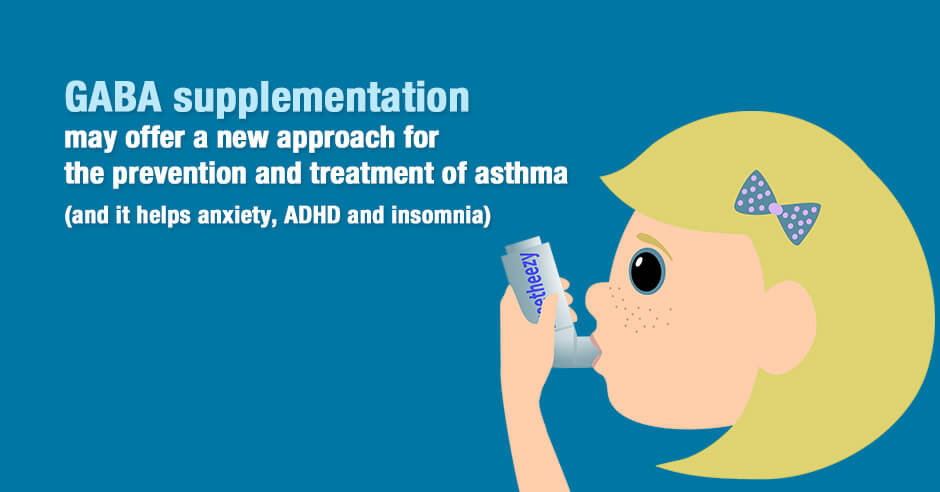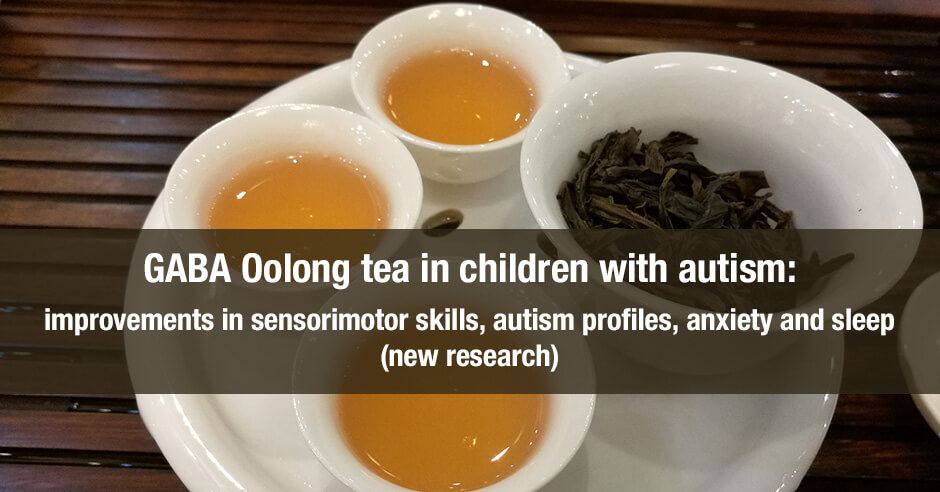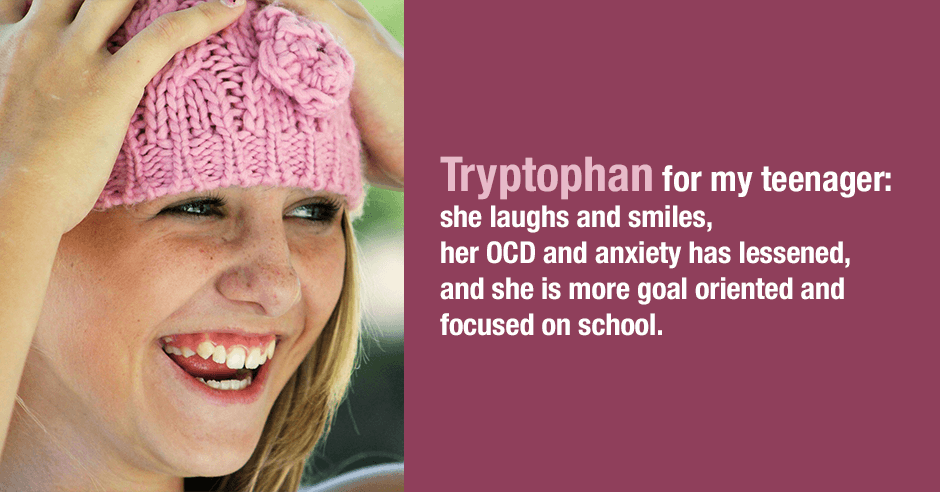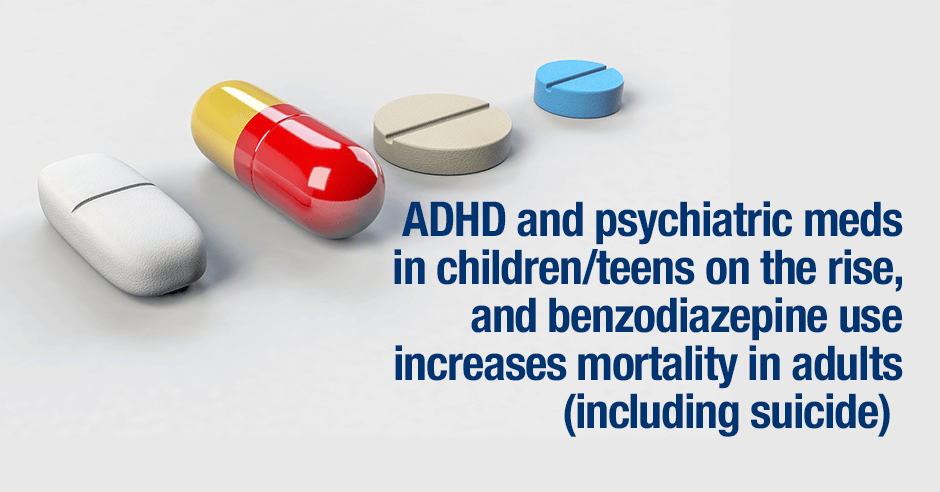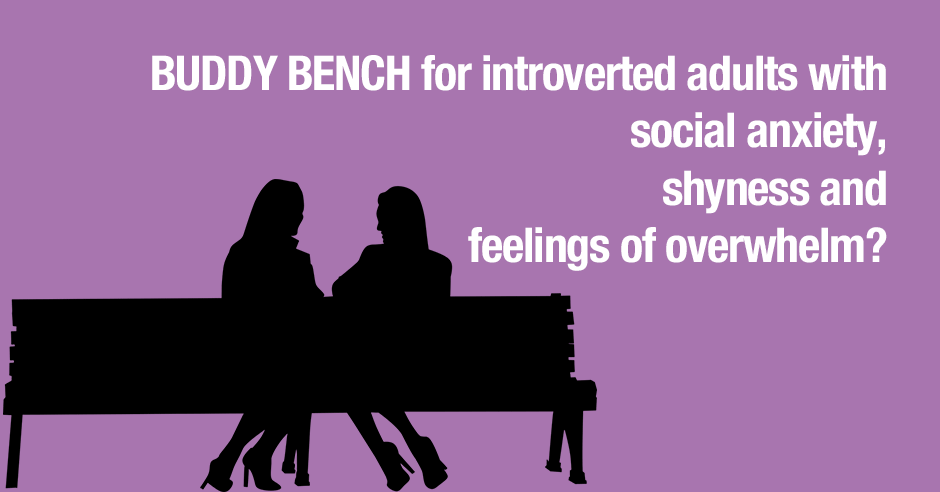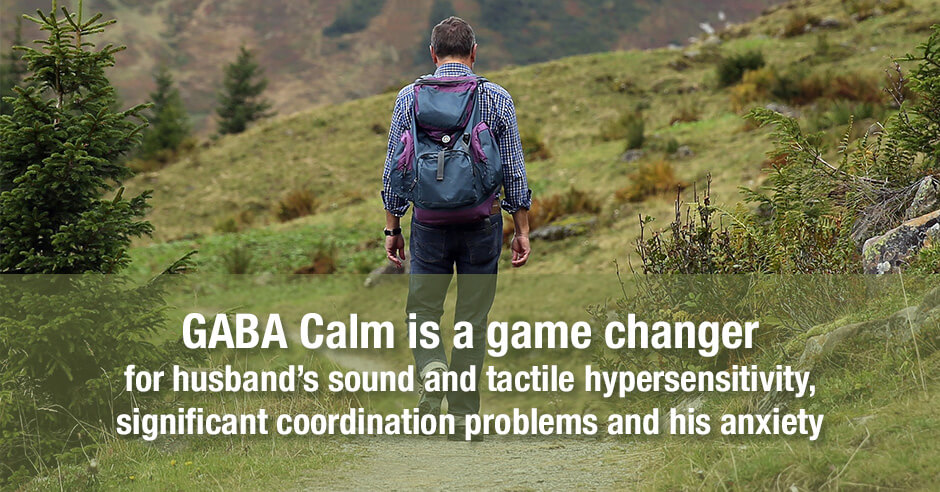
My husband is low in GABA and he had significant coordination problems and sensory sensitivity ….. until GABA Calm. 3 tablets per day work great. If he has none, he gets hyper sensitive again and starts tripping over things in the house.
He has always struggled with anxiety and sound / tactile hypersensitivity. Alongside that he often tripped over things. He made great progress when he started using The Listening Program. I wonder if this sound therapy raises GABA and that was why it helped him (although it only partially helped with anxiety)?
When he stopped The Listening Program then his symptoms came back.
He started taking GABA Calm as I saw it in your blogs years ago. Then he found that he didn’t need to do the Listening Program any more.
GABA Calm is a game changer for him.
Denise shared this feedback about her husband’s great results on a blog post about GABA Calm helping with anxiety and sensorimotor skills in an autistic child.
I thanked her for sharing these wonderful results her husband is experiencing. I am inspired to share this feedback as a blog to give others hope. And also because this illustrates the diversity of how GABA can help i.e. it works for adults and children, males and females, and there is different dosing according to each person’s unique needs.
Music therapy: calming effect and GABA mechanisms
This study, Emotional Inhibitory Effect of Music Therapy on Anxiety Neurosis Based on Neural Content Analysis in Hippocampus, reports that music therapy has a calming effect by adjusting the glutamate/GABA balance. This is likely why Denise’s husband found The Listening Program to be helpful in certain ways – glutamate is the main excitatory neurotransmitter and GABA is the main calming neurotransmitter.
GABA, the GABA Calm supplement, hypersensitivity and sensorimotor difficulties (research)
GABA (gamma-aminobutyric acid) is your main inhibitory neurotransmitter and the amino acid GABA can be used as a supplement to raise GABA levels and ease physical anxiety symptoms, help with insomnia, stress eating, intrusive thoughts and stiff/tense muscles.
GABA Calm is one of many different GABA supplements that I recommend to my clients. This particular one is a sublingual/chewable offered as a 125mg dose, which is where I have most of my clients start. Denise’s husband finds that 3 GABA Calm used throughout the day are enough for his needs. These alleviate his anxiety and also stop his sound and tactile hypersensitivity, and significant coordination problems such as tripping.
This paper reports that“Sensory over-responsivity (SOR), extreme sensitivity to or avoidance of sensory stimuli (e.g., scratchy fabrics, loud sounds)… is present in 5–15% of the general population and is even more common (rates over 50%) in individuals with both genetic and environmentally-based psychiatric and neurodevelopmental disorders such as anxiety, attention deficit hyperactivity disorder, early life adversity, and autism spectrum disorder (ASD).”
The authors discuss altered thalamic sensory gating and an excitatory (glutamate) / inhibitory (GABA) neurochemical imbalance in ASD youth. Most of the research on sensory issues and GABA has been done in ASD children but it clearly applies to adults with anxiety too.
I highlight the motor issues with GABA/glutamate imbalances in the above GABA sensorimotor skills blog. This research is also looking at ASD populations but these mechanisms may account for her husband’s significant coordination problems/tripping.
You can read the current list of low GABA symptoms here. This list will be updated with sound and tactile hypersensitivity, and coordination problems/tripping (and a few others like asthma and laryngospasm).
An occupational therapist who is training as a nutritional therapist
Denise is an occupational therapist (OT) who is training as a nutritional therapist so she can recommend supplements for the kids she works with, alongside the other therapies she uses as an OT. I love this. I’m a big believer in using everything we have at our disposal and am a huge advocate of OT. I would love to see more OTs and other practitioners using the amino acids and nutritional therapy.
Denise shared that she actually started her journey in nutritional therapy 20 years ago due to the impact she was seeing in diet and autism. She took a very long break and had her own children and has now restarted her training. She shared this:
I plan to integrate nutritional advice into my work with families. As I am currently a NT student I haven’t been able to advise families even regarding the GABA Oolong tea [more on that below]. I am excited to qualify as I see various sensory, motor and attention issues that can be easily treated through nutritional adjustments and supplements.
Denise is already using the amino acids personally and with her family, sharing: “I love using aminos e.g. 5-HTP and L-theanine for myself and my daughters and GABA for my husband, tyrosine occasionally for my son.”
She has my book “The Antianxiety Food Solution”, a great resource that is practical and fully referenced, for both consumers and practitioners.
I encouraged her to also look into the amino acid training I offer for practitioners once she has completed her training as a nutritional therapist, so she can confidently use them with her clients too.
Having her in the program is also an opportunity for me and others in the group to learn from Denise about her expertise on integrating amino acids, nutrition and OT.
Her feedback on GABA oolong tea or GABA Calm for children with autism?
She also commented that she loved reading the GABA Oolong research – GABA Oolong tea in children with autism: improvements in sensorimotor skills, autism profiles, anxiety and sleep (new research)
I asked for her feedback and if she has kids in her practice, see any benefits when drinking this GABA Oolong tea. And what their responses are to the taste. Since she is still a student she can’t yet advise families regarding the GABA Oolong tea but she did say this:
To be honest I think the Source Naturals GABA Calm sublingual will be easier to tolerate for lots of children compared with tea.
As fascinating as the GABA Oolong tea research is, I feel the same way and I really appreciate this feedback from an OT. I have actually received similar feedback from a number of other practitioners too. Stay tuned as I continue to gather feedback.
Autism: diet, GABA and working with an OT
It’s amazing that 20 years ago Denise was seeing the impact of diet in kids with autism. If you would like to learn more, this blog – Nutritional and Dietary Intervention for Autism Spectrum Disorder – summarizes a 2018 study and offers many insights into to the progress since then.
As I mentioned above, her husband’s success with 3 GABA Calm illustrates the diversity of how GABA can help i.e. adults and children, males and females, and different dosing according to each person’s unique needs.
This is the blog Denise commented on – Half a crushed GABA Calm for my autistic child: sleep, anxiety and sensorimotor skills (writing, horse riding and swimming) improve.
In the above blog, I share Vic’s feedback about just half a GABA Calm improving her daughter’s sleep, social skills and sensorimotor skills such as pen and pencil use, horse riding and swimming. Her daughter is also working with an OT and getting those added benefits too.
Resources if you are new to using GABA and other amino acids as supplements
If you are new to using tryptophan, GABA or any of the other amino acids as supplements, here is the Amino Acids Mood Questionnaire from The Antianxiety Food Solution (you can see all the symptoms of neurotransmitter imbalances, including low GABA and low serotonin).
If you suspect low levels of any of the neurotransmitters and do not yet have my book, The Antianxiety Food Solution – How the Foods You Eat Can Help You Calm Your Anxious Mind, Improve Your Mood, and End Cravings, I highly recommend getting it and reading it before jumping in and using amino acids on your own so you are knowledgeable. And be sure to share it with the practitioner/health team you or your loved one is working with.
There is an entire chapter on the amino acids and they are discussed throughout the book in the sections on gut health, gluten, blood sugar control, sugar cravings, self-medicating with alcohol and more.
The book doesn’t include product names (per the publisher’s request) so this blog, The Antianxiety Food Solution Amino Acid and Pyroluria Supplements, lists the amino acids that I use with my individual clients and those in my group programs. You can find them all in my online store.
If, after reading this blog and my book, you don’t feel comfortable figuring things out on your own (i.e. doing the symptoms questionnaire and respective amino acids trials), a good place to get help is the GABA QuickStart Program (if you have low GABA symptoms). This is a paid online/virtual group program where you get my guidance and community support.
If you are a practitioner, join us in The Balancing Neurotransmitters: the Fundamentals program. This is also a paid online/virtual program with an opportunity to interact with me and other practitioners who are also using the amino acids.
Have you or a family member had GABA help with sound and tactile hypersensitivity, coordination problems and anxiety?
Which GABA product and how much?
And is the GABA product used sublingually or the capsule opened?
Are you an OT using amino acids and nutritional approaches with your clients, in addition to other approaches?
Do you find music therapy to be calming, in a similar way to the calming effects of GABA?
If you have other questions and feedback please share them here too.
